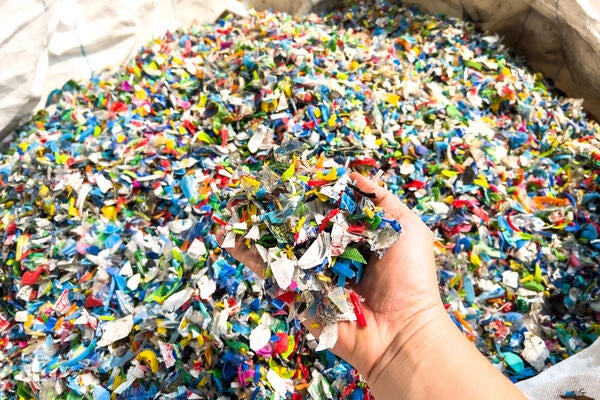
Q and A with the Experts: COVID-19 vaccination for children
Professor Kelly Grindrod and Dr. Andrea Chittle provide answers to questions related to COVID-19 vaccine for children

Professor Kelly Grindrod and Dr. Andrea Chittle provide answers to questions related to COVID-19 vaccine for children
By Media RelationsApproval of the Pfizer-BioNTech vaccine for children aged five to 11 is expected soon in Canada. What do parents need to know? Kelly Grindrod, a pharmacist and professor, and Dr. Andrea Chittle, a primary care physician and Master of Public Health student, provide answers and educational resources.
What are the risks of COVID-19 infection in children?
COVID-19 infection can cause serious illness and death in any child. COVID-19 can cause inflammation of the heart (myocarditis) and the sac around the heart (pericarditis). Multisystem Inflammatory Syndrome (MIS-C) is most common in children aged five to 11.
We are still learning about Long COVID. In early studies, one to four out of every 100 children with a COVID-19 infection had lasting symptoms (1% to 4%). Symptoms include tiredness, headache, sore throat, and loss of smell. Children can get Long COVID even after a mild illness.
What are the benefits of COVID-19 vaccination for children?
Most people will be exposed to COVID-19 in the next year. Unvaccinated people are much more likely to get COVID-19. In vaccine trials, children had a strong immune system response to the Pfizer vaccine. Children who got two doses of the Pfizer COVID-19 vaccine had a 91% lower chance of getting sick with COVID-19. The Pfizer vaccine protects children from getting sick with the Delta variant.
Is there any difference between the vaccine for children aged five to 11 years and the one given to teens and adults?
Health Canada is first reviewing the Pfizer-BioNTech (also known as Comirnaty®) COVID -19 mRNA vaccine for approval for children aged five to 11. The Pfizer vaccine for children uses a lower dose than what’s given to teens and adults. The vaccine used for teens and adults has 30 micrograms of mRNA. The vaccine for children has 10 micrograms. Smaller vaccine doses for children work well because children have stronger immune responses than adults.
What are the side effects of mRNA COVID -19 vaccines in children?
Common side effects
Common side effects are a sore or red arm, tiredness, chills, and muscle or joint pain. Many children in the trials had mild side effects after getting the Pfizer vaccine. Side effects go away after a few days.
Serious side effects (rare)
No new serious side effects were seen in the Pfizer vaccine trials for children. Serious side effects, like anaphylaxis (a severe allergy), after mRNA COVID -19 vaccines are rare. For every one million Pfizer doses given to people aged 12 and older, there are two to eight cases of anaphylaxis. Children with allergies to foods, drugs, insect stings, or other vaccines can safely get mRNA COVID -19 vaccines.
Inflammation of the heart and the sac around the heart rarely happens after COVID-19 vaccines. These conditions are more likely for young males after dose two. They are usually mild and are treated with rest and anti-inflammatory medicines. These conditions happen far more often after a COVID-19 infection. For more, see this infographic on myocarditis and pericarditis.
Long-term side effects (not expected)
Long-term side effects are not expected from mRNA COVID-19 vaccines. Vaccine side effects tend to happen in the first six weeks. mRNA vaccines have been studied in humans since 2013 with no known long-term effects. The body breaks down the mRNA in the COVID-19 vaccine in two to three days. The spike protein may stay in the body for up to two to three weeks. There have been reports of short-term menstrual cycle changes, but vaccines do not impact fertility, genes (DNA), or hormone levels.
How can I support a child who is anxious about vaccines?
Numbing skin patches or creams from a pharmacy can help children who are worried about pain. The CARD (Comfort, Ask, Relax, and Distract) system may also help. Guardians can talk with their healthcare team to make a vaccine plan for children with more complex needs.
These and more frequently asked questions on this topic are covered in a COVID-19 mRNA vaccine for children infographic recently released by professor Grindrod, Dr. Chittle and their team.

Hand holding small pieces of cut colourful plastic bottles, which Waterloo researchers are now able to convert into high-value products using sunlight. (RecycleMan/Getty Images)
Read more
Sunlight-powered process converts plastic waste into a valuable chemical without added emissions

Dr. Travis Craddock, professor and Canada Research Chair, says the team's findings change our basic knowledge of biology (University of Waterloo).
Read more
New study reveals quantum-level effects in biology with major implications for treatment of some brain diseases

ESO 137-001, a jellyfish galaxy like the one recently observed by astrophysicists at the University of Waterloo. (Credit: NASA, ESA)
Read more
New astronomical find is 8.5 billion years old and reshapes our understanding of early cosmic evolution
The University of Waterloo acknowledges that much of our work takes place on the traditional territory of the Neutral, Anishinaabeg, and Haudenosaunee peoples. Our main campus is situated on the Haldimand Tract, the land granted to the Six Nations that includes six miles on each side of the Grand River. Our active work toward reconciliation takes place across our campuses through research, learning, teaching, and community building, and is co-ordinated within the Office of Indigenous Relations.